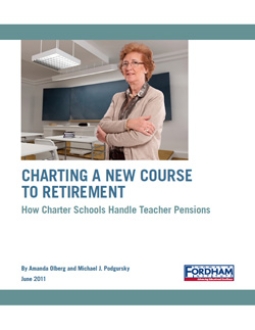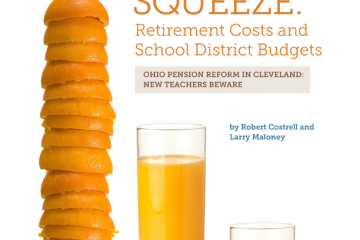In this "Ed Short" from the Thomas B. Fordham Institute, Amanda Olberg and Michael Podgursky examine how public charter schools handle pensions for their teachers. Some states give these schools the freedom to opt out of the traditional teacher-pension system; when given that option, how many charter schools take it? Olberg and Podgursky examine data from six charter-heavy states and find that charter participation rates in traditional pension systems vary greatly—from over 90 percent in California to less than one out of every four charters in Florida. As for what happens when schools choose not to participate in state pension plans, the authors find that they most often provide their teachers with defined-contribution plans (401(k) or 403(b)) with employer matches similar to those for private-sector professionals. But some opt-out charters offer no alternative retirement plans for their teachers (18 percent in Florida, 24 percent in Arizona).
Charting a New Course to Retirement: How Charter Schools Handle Teacher Pensions
6.22.2011





